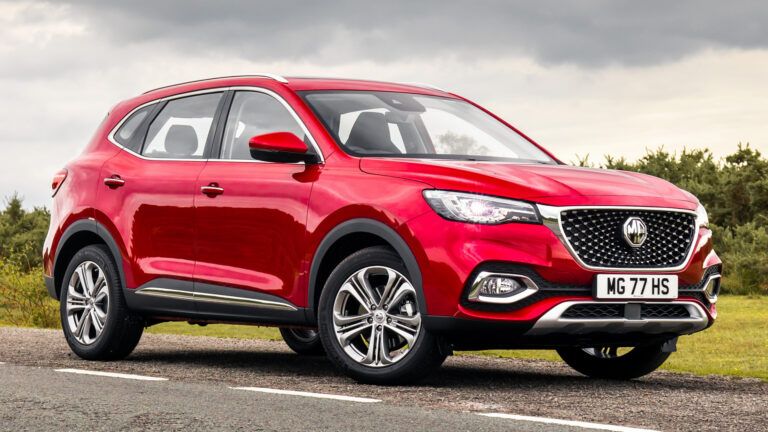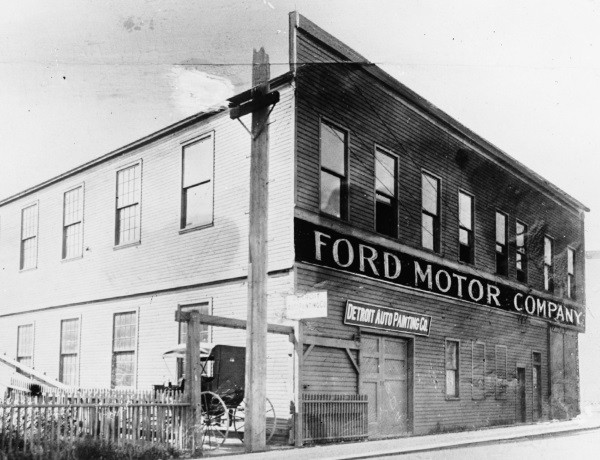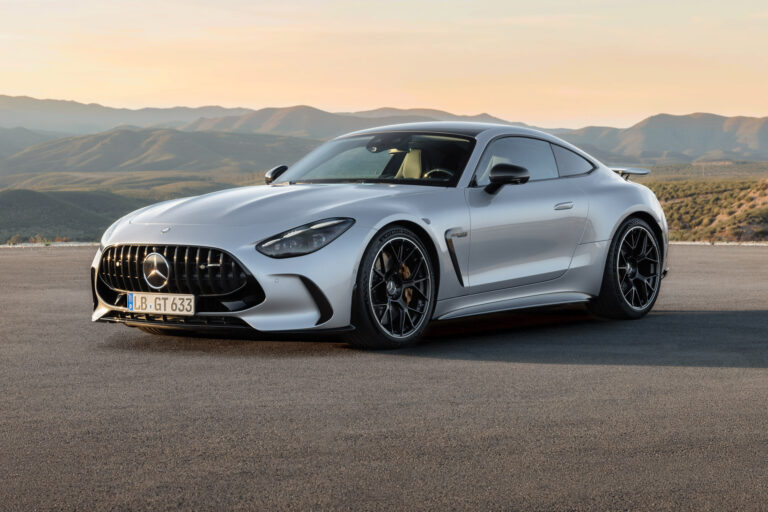All American Car Brands: A Comprehensive Guide to Automotive Excellence
All American Car Brands: A Comprehensive Guide to Automotive Excellence cars.truckstrend.com
The roar of a V8 engine, the steadfast utility of a pickup truck, the sleek lines of a modern electric vehicle – these are all hallmarks of American automotive ingenuity. For over a century, American car brands have not only moved people from point A to B but have also shaped industries, defined cultures, and symbolized the spirit of innovation and freedom. From the pioneering days of mass production to the cutting edge of electric mobility, American car brands represent a diverse and dynamic landscape of engineering prowess and consumer choice.
This comprehensive guide delves into the world of All American Car Brands, exploring their rich history, their current offerings, and their exciting future. Whether you’re a long-time enthusiast, a prospective buyer, or simply curious about the backbone of American industry, understanding these brands is key to appreciating a significant part of the nation’s heritage and economy.
All American Car Brands: A Comprehensive Guide to Automotive Excellence
The Titans of the Road: The "Big Three"
Historically, the American automotive landscape has been dominated by what are affectionately known as the "Big Three." These companies, with their sprawling empires and diverse portfolios, have set the pace for innovation, production, and market trends for decades.
Ford Motor Company: The Legacy of Innovation
Founded by Henry Ford in 1903, Ford revolutionized the automotive industry with the introduction of the assembly line and the Model T, making automobiles accessible to the masses. Ford’s legacy is built on innovation, resilience, and a diverse product line.
- Key Information: Ford remains a global powerhouse, known for its robust trucks, popular SUVs, and iconic performance cars.
- Benefits: Ford vehicles often boast strong towing capabilities, advanced technology features (like SYNC infotainment), and a vast dealer network for service and parts. Their F-Series trucks have been America’s best-selling vehicle for over 40 years.
- Iconic Models: F-Series (F-150, Super Duty), Mustang, Explorer, Bronco, Maverick.
- Future Focus: Significant investment in electric vehicles (F-150 Lightning, Mustang Mach-E) and autonomous driving technology.
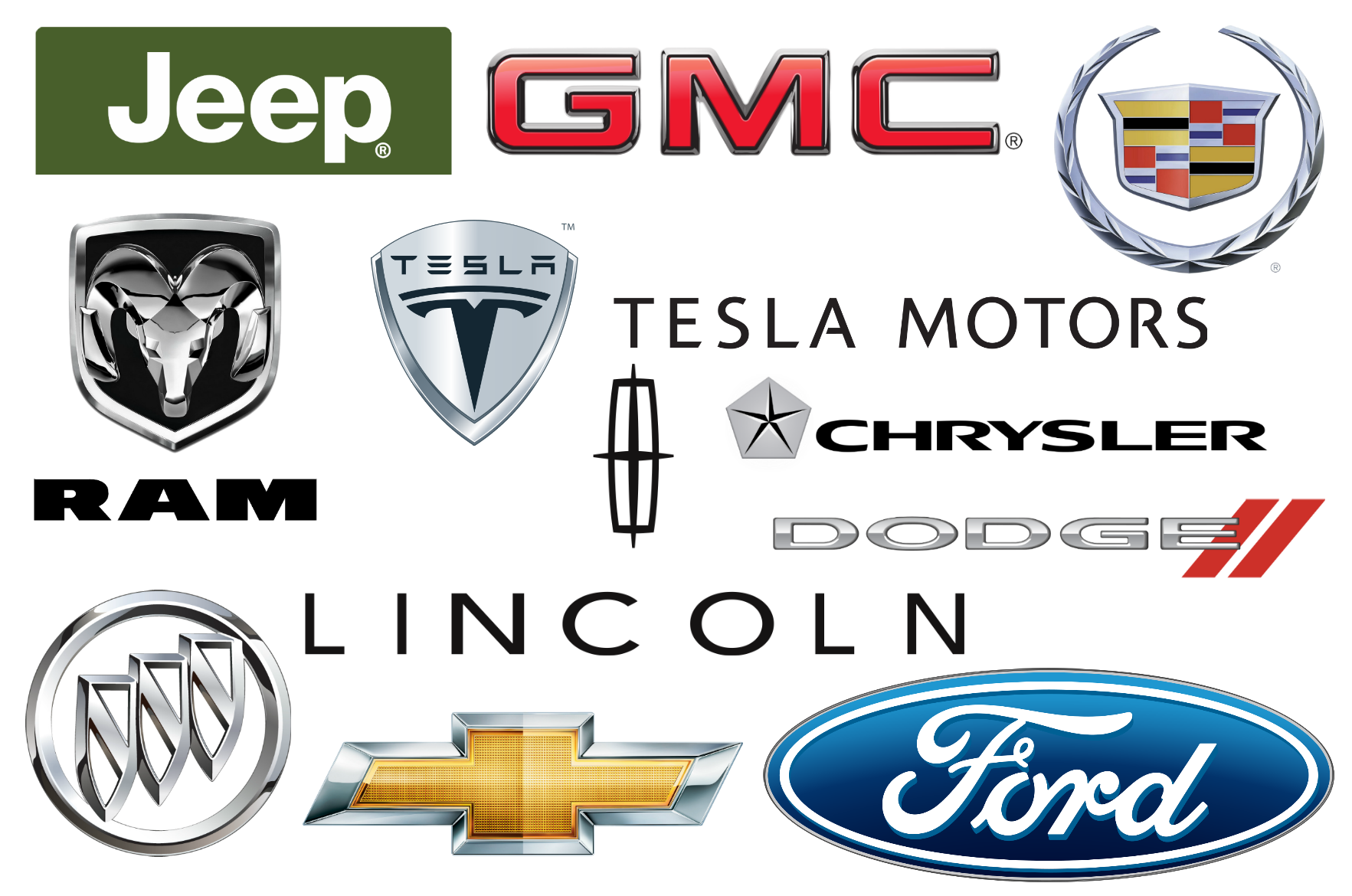
General Motors (GM): A Conglomerate of Choices
Established in 1908, General Motors grew by acquiring numerous smaller car companies, eventually becoming a vast conglomerate offering a vehicle for every segment and budget. GM’s strength lies in its diversified brand portfolio.
- Key Information: GM encompasses a range of popular brands, each catering to specific market needs:
- Chevrolet: The quintessential American brand, offering everything from compact cars (Malibu, Trax) to powerful trucks (Silverado) and sports cars (Corvette). Known for reliability and value.
- GMC: Focuses on premium trucks and SUVs, offering more refined and upscale versions of Chevrolet’s utility vehicles (Sierra, Yukon).
- Cadillac: America’s luxury brand, known for sophisticated design, advanced technology, and powerful performance (Escalade, CT5, Lyriq EV).
- Buick: Positioned as an attainable luxury brand, often targeting a mature demographic with comfortable, quiet, and well-appointed SUVs (Encore, Envision).

- Benefits: GM offers unparalleled variety, strong resale values for many models, and a commitment to new technologies like the Ultium battery platform for EVs.
- Future Focus: GM has committed to an all-electric future, with plans for dozens of new EV models across its brands, alongside continued development in autonomous driving with Cruise.
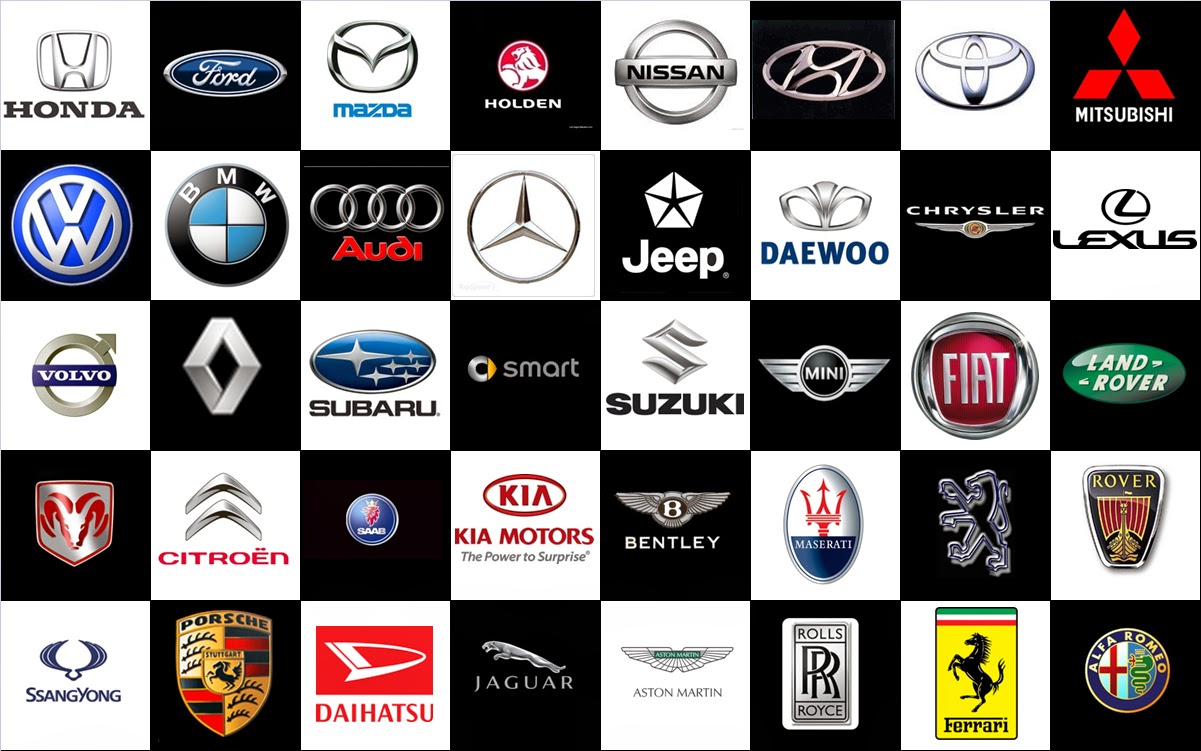
Stellantis North America (formerly Chrysler): Italian-American Synergy
Chrysler, founded in 1925, faced various ownership changes before merging with Fiat in 2014 to form Fiat Chrysler Automobiles (FCA), and then with PSA Group in 2021 to become Stellantis. While now part of a global entity, its American-born brands retain strong U.S. identities.
- Key Information: Stellantis North America manages iconic American brands known for their specific strengths:
- Jeep: The legendary off-road and SUV brand, synonymous with adventure and capability (Wrangler, Grand Cherokee).
- Ram: Specializes in powerful and capable pickup trucks, renowned for their comfort, technology, and towing prowess (Ram 1500, Ram 2500).
- Dodge: Known for its performance-oriented muscle cars and practical family vehicles (Charger, Challenger, Durango).
- Chrysler: Focuses on minivans (Pacifica) and sedans, emphasizing family-friendly features and comfortable rides.
- Benefits: Stellantis brands offer segment-leading capabilities (Jeep off-road, Ram towing), distinctive styling, and a focus on specific niche markets.
- Future Focus: Electrification is a major push, with electric versions of popular models (like the Ram 1500 REV) and new EV platforms.
Beyond the Giants: Niche and Emerging American Brands
While the Big Three dominate in volume, the American automotive landscape is also home to groundbreaking newer players and specialized manufacturers pushing the boundaries of technology and performance.
Tesla: The Electric Revolution
Founded in 2003 by Martin Eberhard and Marc Tarpenning, and later significantly influenced by Elon Musk, Tesla single-handedly ignited the modern electric vehicle (EV) revolution.
- Key Information: Tesla designs and manufactures electric vehicles, battery energy storage, solar panels, and related products. It’s known for its direct-to-consumer sales model and advanced software features.
- Benefits: Leading battery range, rapid acceleration, extensive Supercharger network, over-the-air software updates, advanced Autopilot/Full Self-Driving capabilities.
- Models: Model S, Model 3, Model X, Model Y, Cybertruck (upcoming), Roadster (upcoming).
- Impact: Tesla’s success has forced traditional automakers to accelerate their EV development, fundamentally reshaping the industry.
Lucid Motors: Luxury Electric Performance
Emerging as a strong competitor in the luxury EV segment, Lucid Motors, founded in 2007, aims to redefine premium electric mobility.
- Key Information: Lucid focuses on ultra-luxury electric sedans and SUVs, emphasizing range, performance, and exquisite design.
- Benefits: Industry-leading range (Lucid Air Dream Edition), blistering acceleration, luxurious interiors, advanced technology.
- Model: Lucid Air.
- Future Focus: Expanding its model lineup and production capacity to compete directly with high-end luxury brands.
Rivian: Electric Adventure Vehicles
Founded in 2009, Rivian has carved out a unique niche in the EV market by focusing on electric adventure vehicles – pickup trucks and SUVs designed for both on-road comfort and off-road capability.
- Key Information: Rivian manufactures electric light-duty vehicles, specifically the R1T pickup truck and R1S SUV. They also produce electric delivery vans for Amazon.
- Benefits: Impressive off-road capability, unique "Gear Tunnel" storage, sustainable design, strong performance, and thoughtful adventure-oriented features.
- Models: R1T, R1S.
- Future Focus: Scaling production, expanding charging infrastructure, and potentially introducing smaller, more affordable models.
Other Specialty American Brands
Beyond these major players, the U.S. is also home to a variety of smaller, often hand-built or hyper-performance brands like SSC North America (known for the Tuatara hypercar), Czinger Vehicles (3D-printed hypercars), and Panoz (performance luxury cars), showcasing the diverse spectrum of American automotive engineering.
Key Characteristics of American Cars
While generalization can be difficult across such a diverse range, American cars traditionally share several defining characteristics:
- Power and Performance: From classic muscle cars to modern trucks, a focus on strong engines and robust performance has been a hallmark.
- Size and Space: American vehicles often prioritize interior space, comfort, and cargo capacity, leading to larger sedans, SUVs, and especially pickup trucks.
- Durability and Utility: Trucks and SUVs, in particular, are built to be workhorses, emphasizing ruggedness, towing, and hauling capabilities.
- Technology and Innovation: American brands have consistently been at the forefront of automotive technology, from early mass production to modern infotainment systems, safety features, and electric powertrains.
- Distinctive Design: Often characterized by bold lines, imposing grilles, and a confident stance, American car design reflects a sense of purpose and presence.
The Economic and Cultural Impact
The American automotive industry is far more than just cars; it’s a colossal economic engine and a profound cultural touchstone.
- Economic Pillar: It directly and indirectly supports millions of jobs, from manufacturing and design to sales, service, and the vast supply chain. It contributes significantly to the national GDP and drives innovation in related sectors.
- Symbol of Freedom and Aspiration: The automobile has long been intertwined with the American dream, symbolizing personal freedom, mobility, and the open road. It has been immortalized in countless songs, movies, and works of art.
- Global Influence: American car brands have influenced automotive design and engineering worldwide, particularly in truck and SUV segments.
Navigating the Market: Choosing an American Car
For those considering an American vehicle, here’s practical advice:
- Define Your Needs: Are you looking for a family hauler, a rugged work truck, a fuel-efficient commuter, or a high-performance machine? American brands offer compelling options in every category.
- Consider Total Cost of Ownership: Look beyond the sticker price. Factor in fuel efficiency (especially with gas prices fluctuating), insurance costs, maintenance, and potential resale value. Many American models offer competitive long-term ownership costs.
- Research and Compare: Utilize online reviews, consumer reports, and manufacturer websites to compare models, trims, and features. Don’t be swayed by brand loyalty alone; assess each vehicle on its merits.
- Test Drive Thoroughly: Spend ample time behind the wheel. Pay attention to comfort, handling, visibility, and the usability of infotainment and safety features.
- Explore New Technologies: If you’re open to EVs, American brands like Tesla, Lucid, and Rivian are leading the charge, offering exciting new possibilities in performance and sustainability.
- Support Local: Choosing an American car brand, especially those manufactured domestically, supports American jobs and the economy.
The Future of American Automotive
The American automotive industry is currently undergoing one of its most significant transformations since its inception.
- Electrification Dominance: The shift to electric vehicles is undeniable. American brands are investing billions in developing new EV platforms, battery technologies, and charging infrastructure, aiming to lead the global EV market.
- Autonomous Driving: Research and development in self-driving technology continue at a rapid pace, promising a future of safer and more efficient transportation.
- Sustainability: Focus on sustainable manufacturing processes, recyclable materials, and reduced carbon footprints are becoming central to brand strategies.
- Global Competition: While strong domestically, American brands face fierce competition from established European and Asian automakers, as well as new global EV players. This competition drives innovation and consumer benefit.
Table: Representative American Car Brands and Starting MSRP Ranges
Please note: Prices are estimated starting Manufacturer’s Suggested Retail Price (MSRP) for base models in the United States and are subject to change based on trim level, options, market conditions, and incentives. They do not include destination charges, taxes, or dealer markups. This table provides a snapshot and is not exhaustive of all models.
| Brand | Popular Models/Segments | Starting MSRP Range (USD) | Key Characteristics |
|---|---|---|---|
| Ford | F-150, Mustang, Explorer, Bronco | $35,000 – $60,000+ | Versatile trucks, iconic sports cars, popular SUVs, expanding EV lineup. |
| Chevrolet | Silverado, Equinox, Corvette, Blazer EV | $27,000 – $70,000+ | Broad appeal, reliable trucks & SUVs, performance vehicles, growing EV range. |
| GMC | Sierra, Yukon, Acadia | $39,000 – $75,000+ | Premium trucks and SUVs, refined utility, professional grade. |
| Cadillac | Escalade, XT5, CT5, Lyriq EV | $45,000 – $100,000+ | Luxury sedans and SUVs, bold design, advanced technology, electrification. |
| Buick | Encore GX, Envision, Enclave | $27,000 – $45,000+ | Attainable luxury, comfortable and quiet SUVs, premium features. |
| Jeep | Wrangler, Grand Cherokee, Gladiator | $32,000 – $65,000+ | Unmatched off-road capability, iconic design, adventure-ready SUVs & trucks. |
| Ram | Ram 1500, Ram 2500 | $38,000 – $70,000+ | Powerful and luxurious pickup trucks, segment-leading comfort. |
| Dodge | Charger, Challenger, Durango | $35,000 – $80,000+ | Muscle cars, performance-oriented vehicles, bold styling. |
| Chrysler | Pacifica | $39,000 – $55,000+ | Family-friendly minivans, comfortable ride, practical features. |
| Tesla | Model 3, Model Y, Model S, Model X | $40,000 – $100,000+ | Leading EV technology, long range, direct sales, advanced software. |
| Lucid Motors | Lucid Air | $70,000 – $180,000+ | Ultra-luxury EVs, record-breaking range, premium performance. |
| Rivian | R1T, R1S | $75,000 – $95,000+ | Electric adventure vehicles, off-road prowess, unique utility. |
Frequently Asked Questions (FAQ) about American Car Brands
Q1: What defines an "American" car brand today, given global manufacturing and ownership?
A1: While many American brands have global manufacturing footprints and are part of multinational corporations (like Stellantis), they are generally defined by their historical origin, headquarters location, primary design and engineering centers being in the U.S., and a strong cultural identification with American values and consumer preferences.
Q2: Are American cars reliable?
A2: Yes, modern American cars have significantly improved in reliability and quality. Brands like Chevrolet, Ford, and Ram consistently rank well in consumer satisfaction and reliability surveys, often competing head-to-head with their foreign counterparts. Regular maintenance is key for any vehicle’s longevity.
Q3: Do American cars get good gas mileage?
A3: This perception is changing rapidly. While historically American brands were known for larger, less fuel-efficient vehicles, they now offer a wide range of highly fuel-efficient cars, SUVs, and trucks, including numerous hybrid and plug-in hybrid options. The push towards electric vehicles also means many American brands are at the forefront of zero-emission mobility.
Q4: What are the most popular American car models?
A4: The Ford F-Series pickup truck consistently holds the title of America’s best-selling vehicle. Other highly popular models include the Chevrolet Silverado, Ram 1500, Tesla Model Y, Toyota RAV4 (though Japanese, it’s often manufactured in the US), Honda CR-V (also Japanese-owned but U.S. manufactured), and various SUVs from Ford, Chevrolet, and Jeep.
Q5: Are electric vehicles the future for American brands?
A5: Absolutely. American car brands, particularly Ford, GM, and Tesla, are leading the charge in the electric vehicle revolution. They are investing heavily in new EV platforms, battery technology, and expanding their electric vehicle lineups, signaling a clear commitment to an all-electric future.
Q6: How do American brands compare to foreign brands (e.g., Japanese or German)?
A6: The comparison is nuanced and depends on the specific vehicle segment. American brands often excel in trucks, large SUVs, and performance vehicles, offering strong value, robust capabilities, and distinct styling. Japanese brands are often lauded for their general reliability and efficiency, while German brands are known for luxury, driving dynamics, and engineering precision. Ultimately, consumer preference and specific model attributes play a larger role than country of origin alone.
Conclusion
All American Car Brands represent a compelling blend of tradition and innovation. From the enduring legacy of Ford and GM to the disruptive force of Tesla and the specialized offerings of Lucid and Rivian, the American automotive industry continues to evolve, adapt, and lead. These brands are not just manufacturers of vehicles; they are cornerstones of the American economy, symbols of its inventive spirit, and key players in shaping the future of transportation. As they navigate the exciting challenges of electrification, autonomy, and global competition, American car brands remain a vital and fascinating subject for enthusiasts and consumers worldwide.


